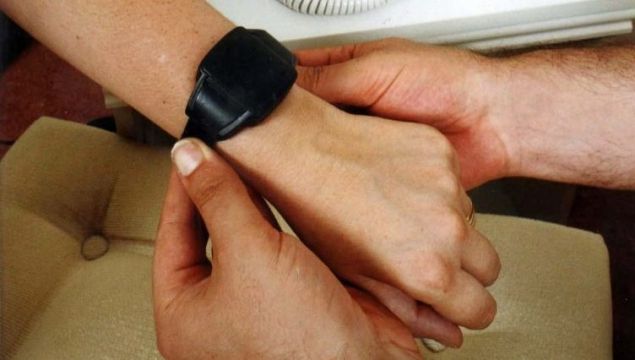It is expected that a pilot scheme will explore the costs and benefits of the electronic tagging of sex offenders living in the community in Ireland after their prison release, according to the Minister for Justice.
In a written Dáil reply, Minister Helen McEntee said new legislation includes a provision for the electronic tagging of sex offenders who are subject to a post-release supervision order, or a sex offender order, that includes a condition restricting the offender's movement after their release.
In the reply to TD Brendan Griffin, Minister McEntee said the provision is part of the Sex Offenders (Amendment) Bill 2021 which has since passed second stage in the Dáil.
“As drafted, this Bill includes provision for a court to order an electronic monitoring device for a convicted sex offender,” she said.
The Minister said the “operational details of how this will work will have to be carefully developed and take account of the costs, value for money, in the context of the technology’s relatively limited effectiveness, as well as the Council of Europe Guidelines.”
She added: "As a technology, it has advanced over the years, but not all of its limitations have yet been overcome and I envisage therefore that a pilot scheme will be introduced to explore its costs and benefits once the legislation is in place. I will keep this matter under review.”
Prison population
Minister McEntee said the aim of electronic tagging “is to provide our courts with a range of appropriate tools and interventions to monitor and reduce the risks posed by sex offenders, to facilitate rehabilitation and to protect the public.”
She added: “There is some evidence that electronic monitoring can be effective in respect of sex offenders when used for a short duration in tandem with other interventions, such as probation supervision and this is what I am proposing in the Bill.”
Earlier this month, the Irish Prison Service (IPS) confirmed that there are 662 sex offenders in prison, making up almost 20 per cent of the prison population.
In response to the increase in sex offenders in custody, the IPS has an eight-house development at Castlerea prison in place as a "reward" for sex offenders engaging in prison based therapeutic interventions.
The Grove area of eight dwellings was built in 2007 and has capacity to house 55 prisoners. It was launched in order to incentivise participation in constructive activities and prison-based therapeutic interventions to enhance public safety on their release.







